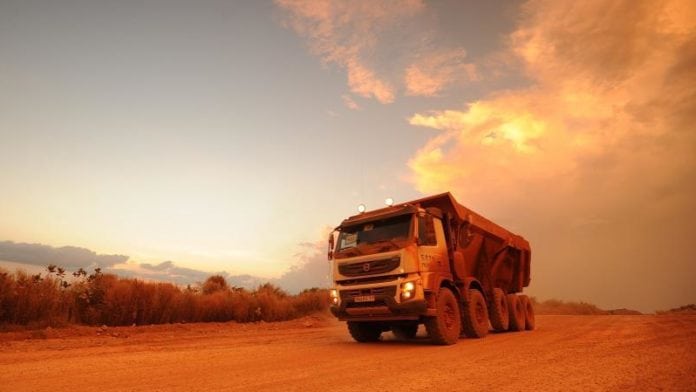
BATTLING against long-standing labour relations troubles at its Côte d’Ivoire mine, Tongon, and regulatory uncertainty in the Democratic Republic of Congo (DRC), Randgold Resources has won a morale-lifting 50% tax break from the Mali government allowing the gold producer to press ahead with an expansion of the Gounkoto mine.
In many ways, Randgold’s relationship with the Malians is perhaps the deepest having first mined there more than 20 years ago at the Syama mine.
Randgold CEO, Mark Bristow, said during that time the mines operated by the firm had contributed $5.9bn to the Malian economy through taxes, royalties, dividends, salaries and payments to local suppliers.
The latest agreement will allow for the development of a super pit at Gounkoto making it one of the largest opencast gold mines in Africa, and extending the life of mine by some five years, said Randgold in a statement. The super pit will also contribute to the current 10-year plan at the Gounkoto complex where profitable production is forecast to be 600,000 ounces annually assuming a gold price of only $1,000/oz.
“Depending on the gold price and input costs, the potential revenue to the state would increase by more than 100% when compared with the original Gounkoto feasibility study completed in 2009,” said Randgold.
“Over more than 20 years, that partnership has enabled us to bring Syama to account, develop Morila and build Loulo-Gounkoto into one of the world’s largest gold mines,” said Bristow. Of the $5.9bn contributed to the Malian economy, the government has received $2.5bn representing more than 60% of the net cash generated by the mines.
“Every year since 2010, Randgold’s operations in this country have accounted for some 6% of Mali’s gross domestic product,” said Bristow – who could be forgiven for casting a glance at the dispensation in the DRC where a new mining code has been implemented which does not offer any of the stabilisation benefits contained in a previous version of the code.
Randgold Resources has had one of its more tricky periods over the last 18 months. In addition to the change of mining code in the DRC, it has uncharacteristically struggled to negotiate with labour at Tongon. On July 30, it announced it was preparing for Tongon’s restart following two weeks of industrial action – a development which will surely put its 290,000 oz guidance for that mine this year in jeopardy. Tongon produced 288,000 oz in Randgold’s 2017 financial year.
In a report dated July 13, RBC Capital Markets said Randgold’s second quarter numbers were a litmus test for the remainder of the year, suggesting, also, that Randgold’s 1.3 million oz target for the year may be in trouble.
“With updates to the DRC mining code now apparently signed into law, we would expect an update as to whether Randgold will seek international arbitration,” said the bank previewing the second quarter results announcement, scheduled for August 9. RBC Capital Markets was also looking for “reassurance” Randgold would hit its production targets at Kibali, a mine it shares with AngloGold Ashanti in the DRC.
“Finally, an update on the group’s likely next mine project Massawa is due in ‘mid-2018’, and we would expect more colour on the next steps and economics there,” it said.
Shares in Randgold have been under pressure in the last 12 months, falling 21% and valuing the firm currently at £5.3bn.








